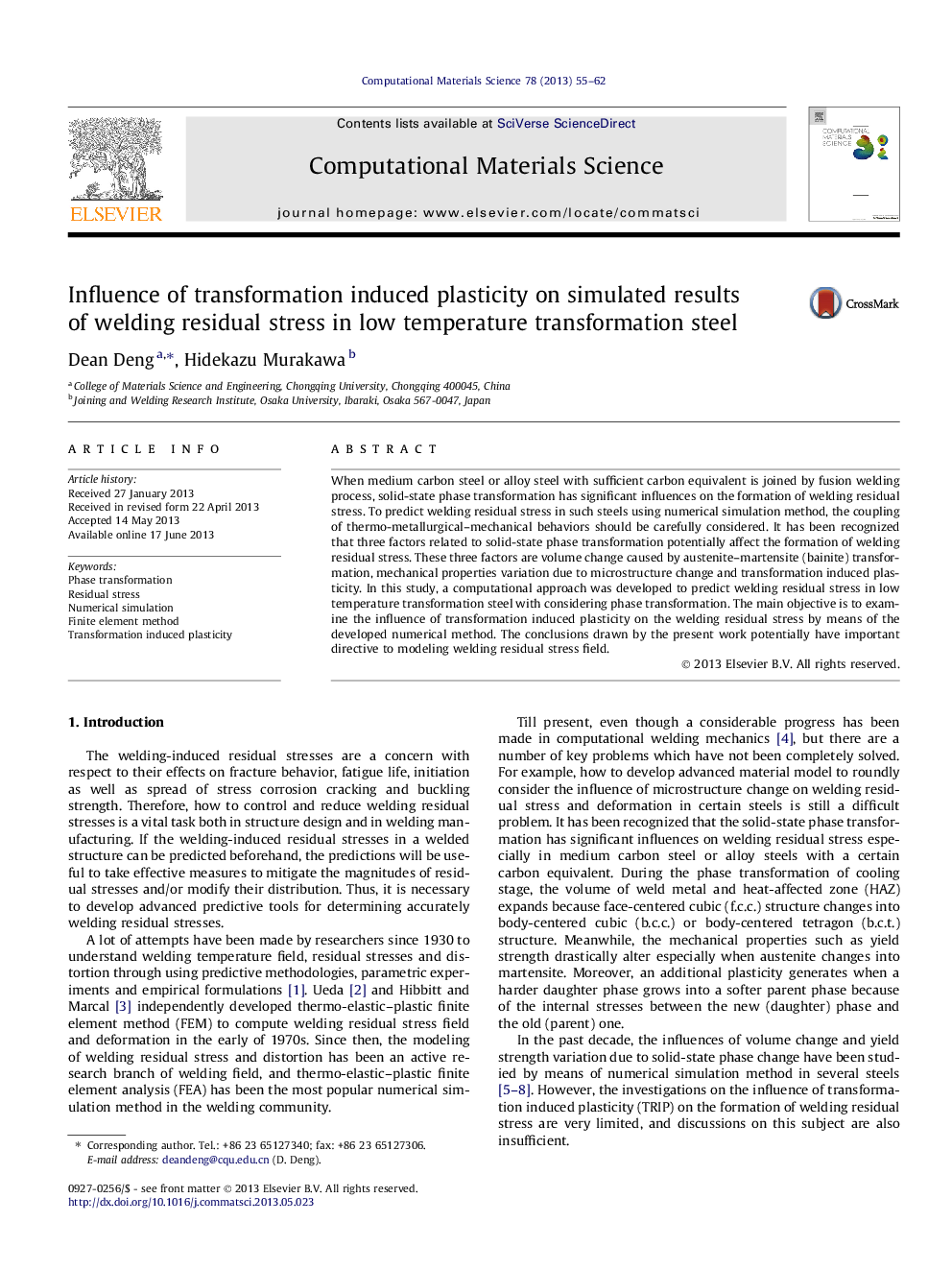| Article ID | Journal | Published Year | Pages | File Type |
|---|---|---|---|---|
| 7961599 | Computational Materials Science | 2013 | 8 Pages |
Abstract
When medium carbon steel or alloy steel with sufficient carbon equivalent is joined by fusion welding process, solid-state phase transformation has significant influences on the formation of welding residual stress. To predict welding residual stress in such steels using numerical simulation method, the coupling of thermo-metallurgical-mechanical behaviors should be carefully considered. It has been recognized that three factors related to solid-state phase transformation potentially affect the formation of welding residual stress. These three factors are volume change caused by austenite-martensite (bainite) transformation, mechanical properties variation due to microstructure change and transformation induced plasticity. In this study, a computational approach was developed to predict welding residual stress in low temperature transformation steel with considering phase transformation. The main objective is to examine the influence of transformation induced plasticity on the welding residual stress by means of the developed numerical method. The conclusions drawn by the present work potentially have important directive to modeling welding residual stress field.
Keywords
Related Topics
Physical Sciences and Engineering
Engineering
Computational Mechanics
Authors
Dean Deng, Hidekazu Murakawa,
